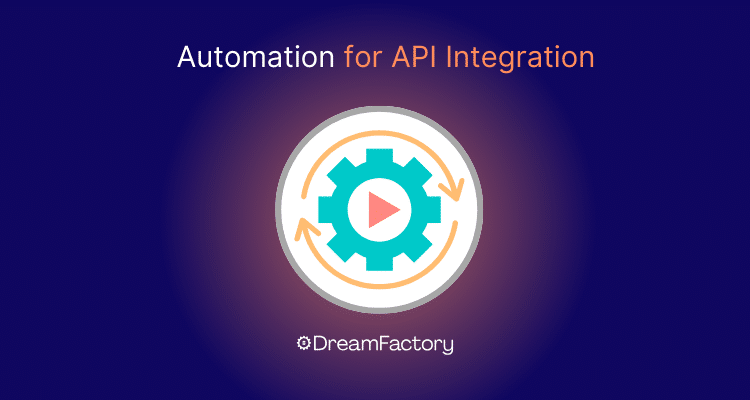The traditional approach to private or internal Application Programming Interface (API) integrations, characterized by labor-intensive and error-prone manual processes, is rapidly becoming obsolete. This method, limited by its time-consuming nature and lack of scalability, is giving way to an era of automation. Automated API integrations marks a significant leap forward, offering unparalleled efficiency, accuracy, and the ability to evolve. This article explores this paradigm shift, highlighting the evolving market perception and the transformative impact of automation for private API integrations.
Here’s the key things to know about automation for API integrations:
- The API integration market is shifting towards automation for efficiency and scalability.
- Automated API processes are overtaking manual ones due to their scalability, accuracy, and cost-effectiveness.
- Trends include cloud-based solutions, AI and machine learning, and microservices architecture.
- E-commerce, healthcare, and finance are adopting automated APIs for enhanced operations and security.
- DreamFactory supports market changes with fast REST API generation, scalability, and advanced security.
The Evolving Market Perception of Automated API Integrations
The market's perception of API integrations has been undergoing a fundamental shift. What was once a domain dominated by manual, labor-intensive processes is now rapidly transitioning to an era of automation. This change, driven by the relentless pursuit of efficiency and scalability, reflects a pragmatic adaptation to the evolving demands of the digital landscape.
Key Factors Driving Change
- Efficiency: Automation eclipses the slow and cumbersome manual processes, enabling rapid and streamlined integrations across both modern and legacy systems. This shift is critical in an environment where speed is synonymous with competitive edge.
- Scalability: Using automated approached to private API integrations scales effortlessly using containerization, Docker, and Kubernetes. Functionally speaking, automating APIs allows API teams to scale more easily with organizational growth. This scalability is vital for businesses evolving in an ever-expanding digital ecosystem.
- Reduced Human Error: By minimizing human intervention, automation significantly cuts down the margin for error, ensuring reliability and consistency in integrations.
- Cost-Effectiveness: Although initial investment in automation may be higher, the long-term efficiency gains and reduced labor costs make it a financially sound decision.
Recent Trends in Automated API integrations
The landscape of automated API integrations is constantly evolving, marked by significant technological advancements and diverse industry adoption. This transformation is characterized by its Spartan-like focus on efficiency and effectiveness.
Technological Advancements
In recent times, automated API integrations has witnessed a profound transformation, driven by advancements in technology and varied industry adoption, all underpinned by a focus on efficiency and effectiveness. The shift towards cloud-based solutions has democratized automation, making it more accessible across businesses of different scales. Meanwhile, AI and machine learning have enhanced the intelligence and efficiency of these systems, and the adoption of microservices architecture has further streamlined integrations processes.
This evolution is evident across multiple sectors: retail have seen improvements in CRM and supply chain operations, healthcare has benefitted from better data sharing, and finance and banking have enhanced secure data exchanges and compliance management.
These trends collectively underscore the critical role of automated API integrations in modern business operations, highlighting its indispensability for operational efficiency and technological adaptability.
Adoption Across Industries
There has been an increased rate of adoption of automation for API integrations across several industries. We’ve collected some of the most important:
- Retail: In these sectors, automated API integrations has been pivotal for inventory management, customer relationship management (CRM), and supply chain operations, enhancing real-time data flow and operational efficiency.
- Healthcare: Automation in API integrations is revolutionizing healthcare by improving data sharing between systems, thus enhancing patient care and administrative efficiency.
- Finance and Banking: Here, automated integrations is crucial for secure data exchanges, compliance management, and customer service enhancements.
Challenges in Automated API integrations
Transitioning to automated API integrations, while beneficial, comes with its own set of challenges. These hurdles, although formidable, are not insurmountable. Let's discuss some of the common obstacles that businesses encounter.
Technical Complexities
Adopting automation is not a straightforward task; it involves navigating through new tools and technologies. These elements require a deep understanding of both the software and the business processes it aims to automate. The challenge lies in reengineering existing processes to seamlessly fit into an automated framework, moving beyond the simplicity of just 'flipping a switch.'
integrations with Legacy Systems
One of the more significant challenges in the shift to automation is integrating modern, automated solutions with existing legacy systems. Often crucial for daily operations, these older systems are typically not designed for easy compatibility with newer technologies. The process of retrofitting them to work with automated APIs demands ingenuity, patience, and often a considerable investment.
Staff Training and Change Management
The implementation of automated API integrations is as much about people as it is about the technology. Staff members often require extensive training to adapt to new systems and workflows. Organizational change can face resistance. Early involvement and education of teams can smooth this transition, nurturing a culture that is more receptive to innovation.
Maintaining Security and Compliance
The increase in the speed and volume of data processing with automation also escalates the importance of security and compliance. It is critical to ensure that automated systems comply with industry standards and regulations, a factor that becomes even more crucial when handling sensitive or personal data.
Cost and Resource Allocation
Although automation promises long-term cost savings, the initial outlay can be substantial. The allocation of resources extends beyond the technology itself, encompassing ancillary expenses such as staff training, system upgrades, and potential operational downtimes during the transition.
Continuous Monitoring and Updating
Post-implementation, the task of maintaining automated systems is ongoing. These systems require regular monitoring and updates to ensure they continue to be efficient, secure, and effective. This necessitates a continued investment in time and resources, keeping the systems aligned with evolving business needs and technological advancements.
In a nutshell, while the path to automated API integrations is laden with challenges, the journey is worthwhile. With careful planning, a clear understanding of these obstacles, and a strategy to overcome them, businesses can successfully navigate this transition and reap the benefits of automation in the long run.
DreamFactory: Pioneering Automated API integrations
DreamFactory specializes in API generation, offering a platform that rapidly turns databases into fully functional APIs. Its relevance in the current market is underscored by the growing emphasis on efficiency, scalability, and the need for streamlined API management.
Addressing Current Needs and Trends
- Rapid API Generation: DreamFactory's ability to instantly create REST APIs from multiple data sources caters to the market's need for speed and efficiency in API integrations. This feature is particularly relevant in today's fast-paced digital environment, where businesses seek to reduce development time and accelerate go-to-market strategies.
- Scalability and Flexibility: The platform's design supports scalability via Docker and Kubernetes, a key market demand. DreamFactory allows businesses to scale their API operations efficiently as they grow, without the need for extensive redevelopment.
- Integrations between Modern and Legacy Technologies: Aligning with the trend towards AI/ML and advanced data processing, DreamFactory can integrate with foster legacy technology and various modern technologies, enhancing its utility in sophisticated, data-driven applications.
Unique Features and Services
- Wide Range of Supported Databases: DreamFactory supports a broad array of databases, which sets it apart from many competitors. This extensive database compatibility means that businesses can leverage DreamFactory for a variety of applications, regardless of their underlying database technology.
- Automated Documentation: The platform automatically generates API documentation. This feature is invaluable for developer efficiency and aligns with the current emphasis on improving the developer experience (DX).
- Security and Customization: DreamFactory provides robust security features out-of-the-box, including user management and detailed access control. Furthermore, it offers customization options, allowing businesses to tailor the APIs to their specific needs.
Conclusion
As we've navigated through the nuances of automated API integrations, it's clear that this new era is not just about embracing technological advancements; it's about reshaping our approach to integrations itself. The transition from manual processes to automated solutions like DreamFactory represents a strategic shift, aligning with the relentless pursuit of efficiency, scalability, and innovation in the digital age.
DreamFactory’s ability to rapidly transform databases into fully functional APIs, coupled with robust security and a wide range of database compatibility makes it a vital tool in automation for API integrations. We’re always available if you would like to start a free trial or book some time with an engineer!
As a seasoned content moderator with a keen eye for detail and a passion for upholding the highest standards of quality and integrity in all of their work, Spencer Nguyen brings a professional yet empathetic approach to every task.
























 Blog
Blog

